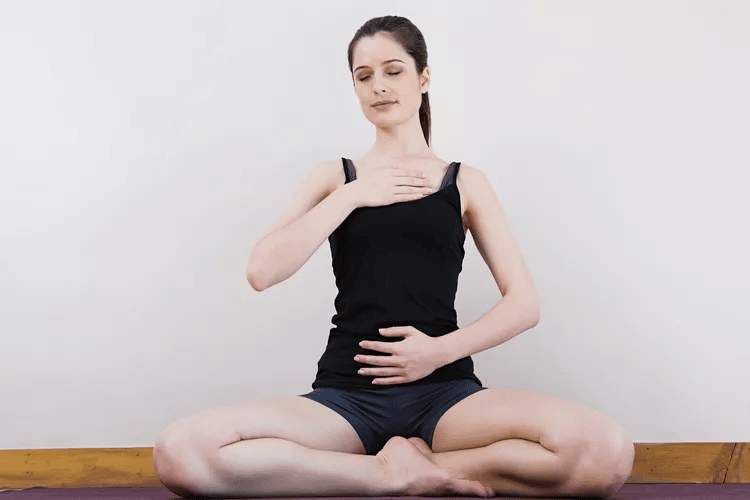When it comes to improving our health, many of us focus on areas we can easily quantify and track, such as how many carbs or calories we consume or how many times we exercise each week. Although it may be harder to measure, reducing and managing stress is a key component of staying healthy. Chronic stress has been linked to heart disease, high blood pressure, diabetes, depression, and anxiety, according to the National Institute of Mental Health.
Managing that stress is easier said than done, but there is evidence to suggest that deep breathing can be an effective intervention to help improve many chronic health conditions, an internal medicine doctor at the Center for Integrative Medicine at Cleveland Clinic Health System in Ohio.
It’s important to note that breathing exercises are a complementary therapy, “Deep breathing should not replace any of the other medicines or interventions that your doctor recommends,” she says. Put differently, deep breathing is not an alternative therapy.
There’s a lot to recommend deep breathing as a complementary therapy. “There really aren’t any side effects, and breath exercises can be accessed any time of the day. It’s very empowering to be able to use breathing to help reduce stress and improve focus.
Deep breathing brings fresh oxygen and exhales out toxins and carbon dioxide. When the blood is oxygenated, it ensures smoother functioning of your vital organs, including the immune system. A cleaner, toxin-free and healthier blood supply help ward off infection-causing germs from the base and strengthens your immunity. Deep breathing also acts as a natural toxin reliever. It also benefits the absorption of vitamins and nutrients in the body, making sure you recover faster as well.
Calms down anxiety
Practicing deep breathing is a hack a lot of experts and psychologists swear by to treat anxious thoughts and nervousness in a jiffy. Deep breathing slows down your heart rate, allows the body to take in more oxygen and ultimately signals the brain to wind down. It also balances your hormones- lowering down cortisol levels, increasing endorphin rush in the body.
Helps you sleep better
Following a simple deep breathing regime- ‘5-4-3-2-1’ can guarantee better sleep. Taking slow, deep, long breaths can signal your body to detoxify and return to a sense of calm- which can help you sleep better. Those undergoing insomnia are often suggested practising breathing exercises, along with meditation before bedtime for good sleep.
Increases energy level
Due to increased blood flow, we get more oxygen into our blood. Increased oxygen results in increased energy levels.
Improves posture
Believe it or not, bad posture is related to incorrect breathing. If you don’t believe, try it yourself. Try to breathe deeply and notice how your body starts to straighten up during the process. When you fill your lungs with air, this automatically encourages you to straighten up your spine.
Reduces inflammation
A lot is said that diseases like cancer only thrive in bodies that are acidic in nature. Deep breathing is said to reduce the acidity in your body, thereby making it alkaline. Stress also increases acidity level in the body. Breathing also reduces stress and thus the acidity.
It detoxifies the body
Carbon dioxide is a natural toxic waste that comes out from our body only through breathing. But when our lungs are compromised by shallow breathing the other detoxification system starts working harder to expel this waste. This can make our body weaker and lead to illness.
Stimulates lymphatic system
As our breathing is what moves the lymph, shallow breathing can lead to a sluggish lymphatic system which will not detoxify properly. Deep breathing will help you get the lymph flowing properly so that your body can work more efficiently.
Improves digestion
Breathing deep supplies more oxygen to all our body parts including our digestive system, thus making it work more efficiently. The increased blood flow due to deep breathing also encourages intestinal action which further improves your overall digestion. In addition, deep breathing results in a calmer nervous system, which in turn also enhances optimal digestion.
Breathing relaxes mind and body
When you are angry, tensed or scared, your muscles are tightened and your breathing becomes shallow. Your breathing constricts. At this time your body is not getting the amount of oxygen it requires. Long deep breathing reverses this process, allowing your body (and mind) to become calmer.


